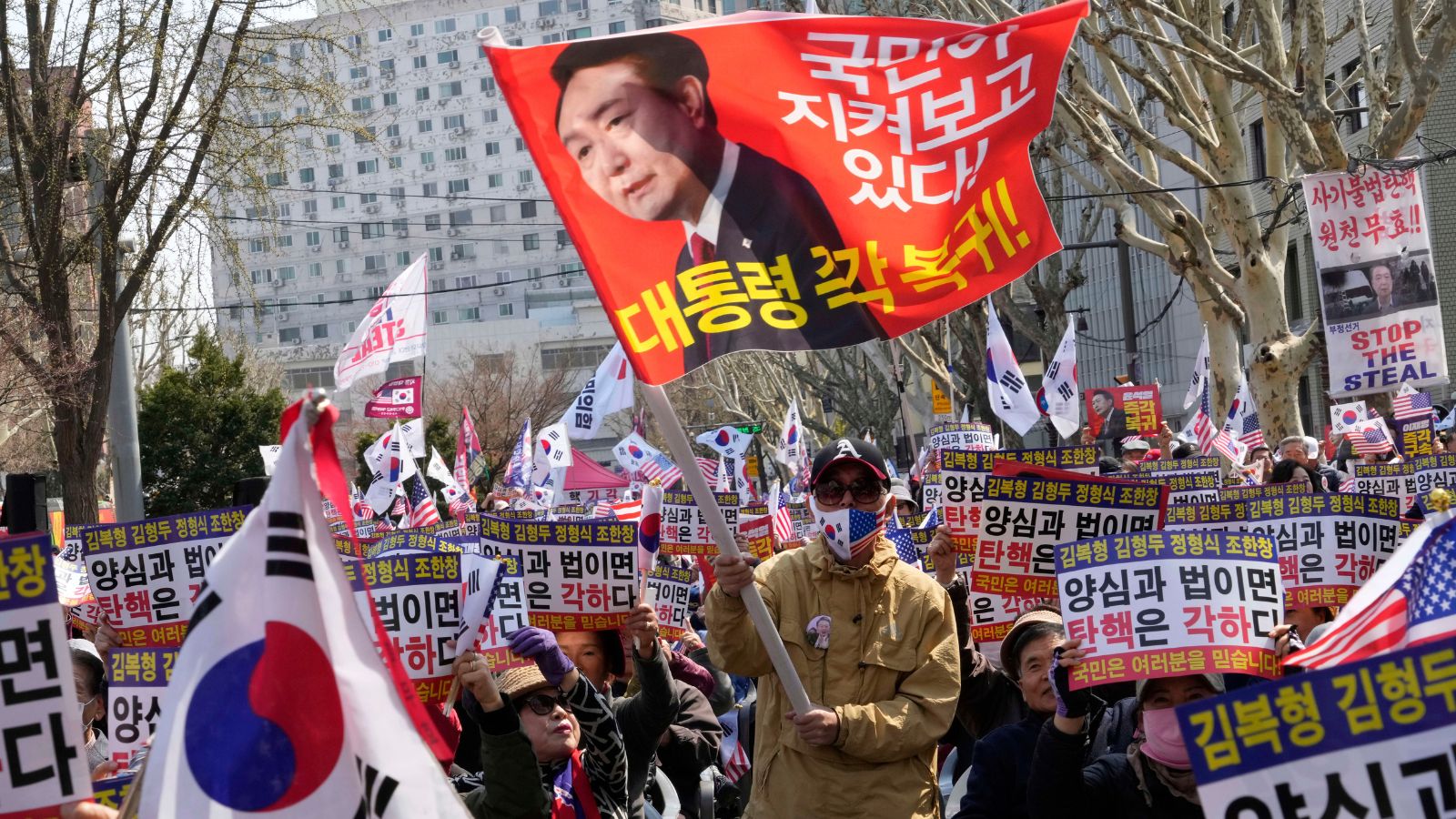May 6, 2025 19:02 IST
First published on: May 6, 2025 at 18:55 IST
Han Duck-soo, the interim president of South Korea, resigned on May 2, citing his desire to prepare for a more significant role. Choi Sang-mok, the deputy prime minister and next in line to become interim president of South Korea, also resigned. The political crisis that erupted after Yoon Suk yeol was impeached at the beginning of this year is clearly yet to be resolved.
Yoon Suk yeol was the second South Korean president to be impeached, following Park Geun-hye. Yoon’s impeachment is viewed as a democratic triumph for the country. The Economist Intelligence Unit (EIU), a branch of the Economist Group which creates the Democracy Index, ranks South Korea 16th out of 167 countries. South Korea’s democracy with its frequent changes in government, free and fair elections, and citizen participation are acknowledged across the world.
Story continues below this ad
But the current crisis has tarnished that reputation. Accusing the opposition of having North Korean sympathies, Yoon implemented martial law with ease, underscoring the dangers of excessive securitisation and the deterioration of democratic standards. Moon Jae-in’s previous administration, too, was widely criticised for sabotaging institutions and abusing power. This democratic regression can be attributed to a number of reasons.
First, securitisation, which is the process of taking an issue that is not a security threat and framing it as an existential danger, has been used to support a variety of undemocratic practices, including citizen surveillance and limitations on free expression. This pattern began underSyngman Rhee’s administration, when authoritarian practices were justified by framing North Korea as a danger. Every president since has employed the 1948 National Security Law to quell opposition, even though it violates South Korea’s international human rights commitments.
Second, the concentration of executive authority in South Korea also encourages democratic backsliding. While the National Assembly and other independent entities have little ability to monitor the presidency, the South Korean president has considerable authority over intelligence services, the Supreme Prosecutor’s Office, and the bureaucracy. The system of checks and balances is weakened by the executive’s centralisation of powers
Story continues below this ad
Then there is the weak party system. Despite South Korea’s claims to be a multiparty democracy, its political landscape is dominated by two major parties. Others who hold different opinions find it more difficult to be represented as a result. As a result, the political system in South Korea cannot accurately represent people with varied views, and because of its limited intellectual scope, some political ideas are excluded from the conversation. In December 2014, the South Korean government banned the Unified Progressive Party, because it had questioned the government’s election practices, but under the pretext of supporting North Korea.
There are also significant limitations on the nation’s media environment. According to the Press Freedom Index, South Korea is ranked 42nd, and since 2011, the press has been regarded only as partially free. Critics claim that a “fake news bill” that was approved by the government in 2021 was intended to stifle independent journalism. Additionally, the independence of the judiciary has also been under pressure.
Therefore, instead of viewing Yoon’s impeachment as a win, academics and decision-makers ought to concentrate on diversifying South Korean politics. Preventing future political crises requires addressing the nation’s democratic shortcomings and reforming national laws. In the absence of such changes, more and more people would start viewing martial law as a necessary step towards political stability.
The writer is Research Fellow, Indian Minorities Federation

